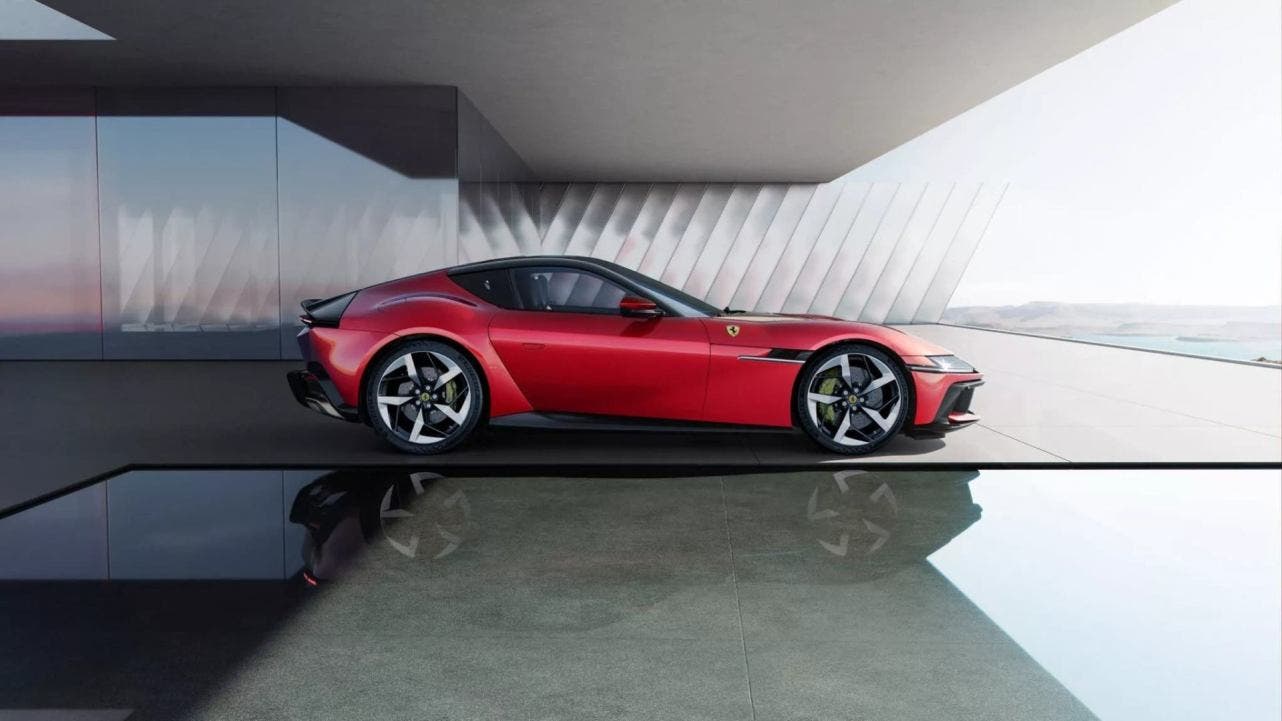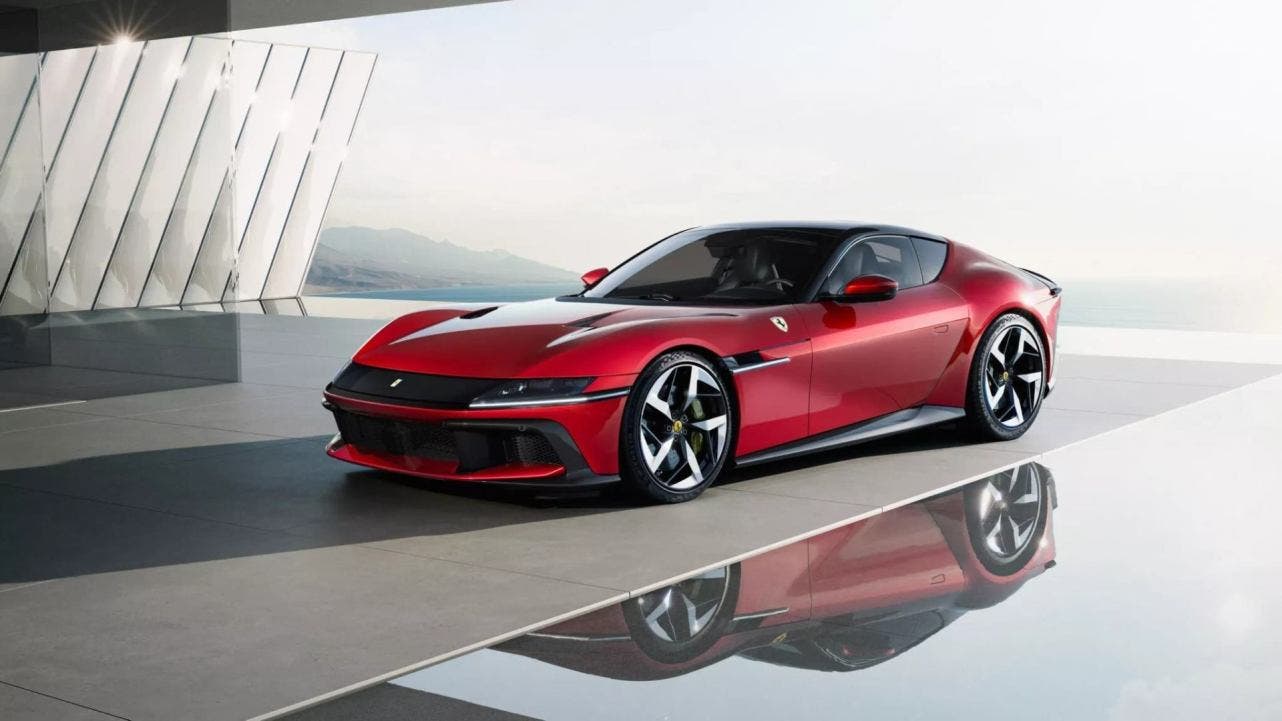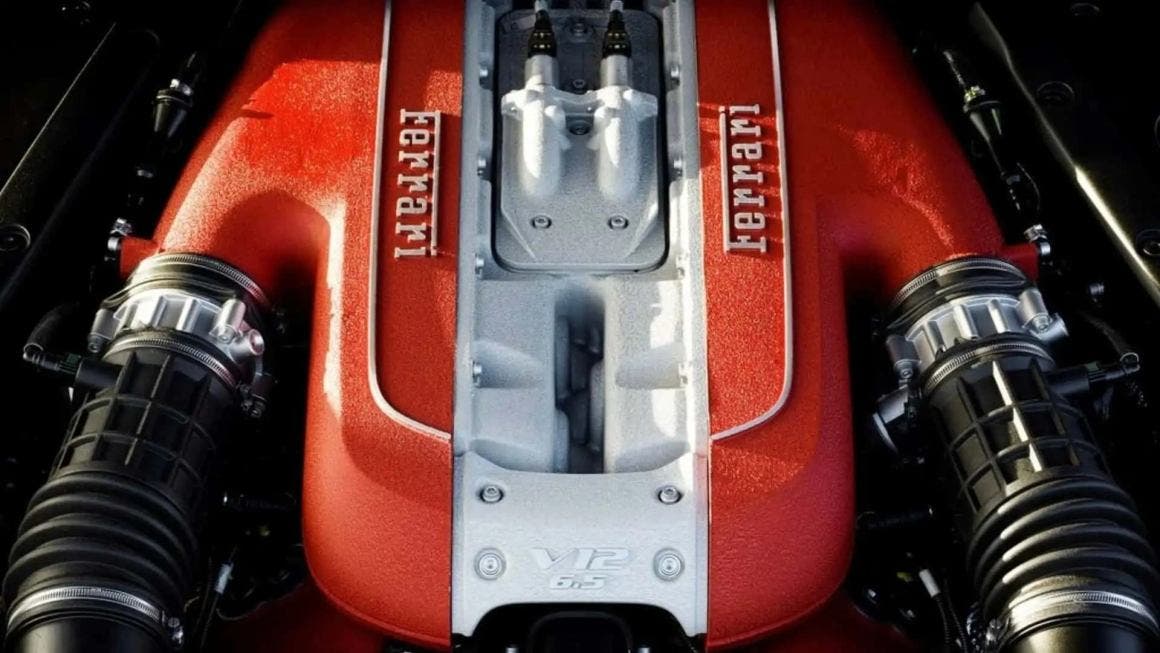The Ferrari brand has no intention, at least for now, of separating from its V12 engine. The latest creation from Maranello, the Ferrari 12Cilindri, is clear evidence of this. Keeping this engine alive until it is impossible to do otherwise is Ferrari’s strategy.
Ferrari will continue to offer its V12 engine on its supercars until they are banned

Emanuele Carando, director of Product Marketing and Marketing Intelligence at Ferrari, has assured enthusiasts that the production of vehicles equipped with the 6.5-liter engine will continue as long as the law allows. “We will continue to produce naturally aspirated V-12 engines as long as the law permits. We hope that in the future there will be legislative opportunities that will allow us to continue, perhaps through the development of new, more sustainable fuels.”
In the new Coupé and Spider versions of the 12Cilindri, the 6.5-liter engine operates at 9,500 rpm, although it is technically capable of reaching 10,000 rpm. Ruggero Cevolani, head of the V-12 program, indicated that the lower limit was chosen to optimize the power output and prevent a decrease in the sensation of constant acceleration.
Cevolani also emphasized that Ferrari is first and foremost an engineering company, and therefore aims to maximize performance rather than exclusively reaching 10,000 rpm and stopping there. It should also be noted that Ferrari does not hold the record for the highest speed engine ever installed in a road car. In fact, the record belongs to the Gordon Murray Automotive T.50 with an extraordinary figure of 12,100 rpm. The Aston Martin Valkyrie, with its 11,100 rpm, also surpasses the 12Cilindri. Not to mention the Ariel Atom V8, capable of reaching 10,600 rpm.

By the end of the decade, Ferrari aims to achieve 40% electric vehicles followed by hybrid models, also at 40%, leaving only 20% for internal combustion models. Ferrari CEO Benedetto Vigna emphasized that “internal combustion engines still have a long way to go.”

